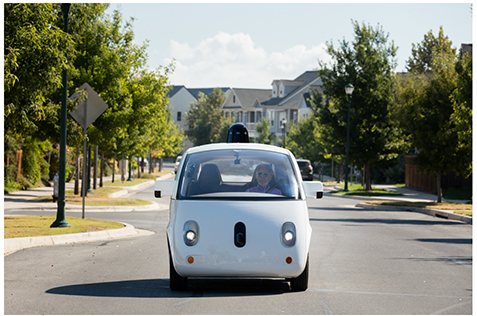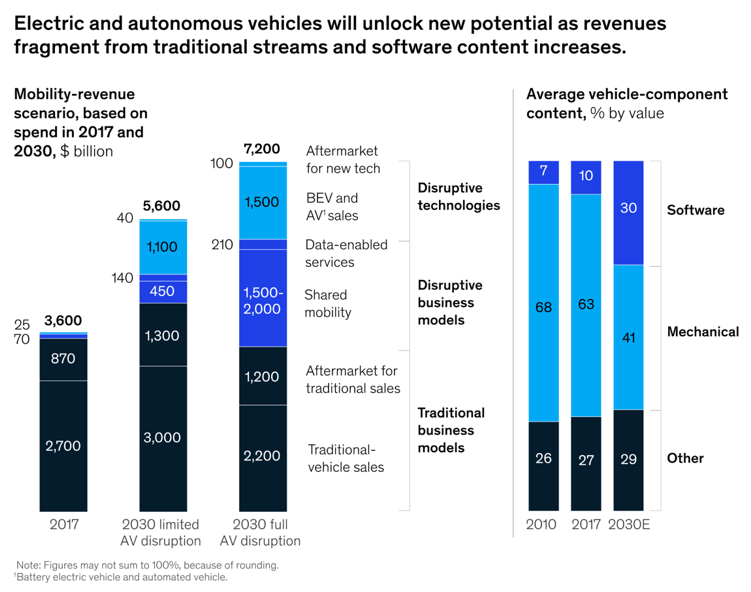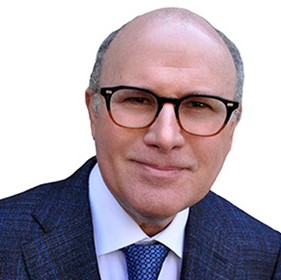Waymo Puts Full-Auto Driving to the Test in San Francisco
A new fleet of self-driving cars is coming to the streets of Northern California.
This time, it might actually be noteworthy.
Waymo, the self-driving car subsidiary of Alphabet (Nasdaq: GOOGL), is now offering free test rides in its autonomous Jaguar I-Pace SUVs.
San Francisco is the second city, after Phoenix, to participate in this robotaxi program. It will be interesting to see how this program works in a new, and notoriously foggy, terrain
How This Reboot Could Put Waymo Back on Track
The company seems to be losing its way in the race for automation with Tesla (Nasdaq: TSLA) having taken the lead. So for Waymo to stay in the competition, this Bay Area experiment needs to work.
Waymo has been on the self-driving trek for a decade.
This journey began in 2009 when Sergey Brin, Google’s co-founder, splintered off a handful of gifted engineers to work out the math for vehicle automation. In 2012, Brin promised to have an operational vehicle within five years.
He was right, sort of.
In 2015, Steve Mahan became the first rider in a fully self-driving car on public roads. He was grinning ear to ear as the test car zipped along the streets of Austin, using sensors to navigate through intersections and around pedestrians.
Technology put Mahan alone in a moving car for the first time in 12 years. Except the ride was a controlled test.
It turns out this whole self-driving thing is a lot harder than engineers first thought. Even the super brainy ones at Google.
John Krafcik, Waymo’s chief executive since 2015, stepped down in April. Many took this departure as a sign that problems were mounting at Waymo.
The business has been operating a fleet of 300 tricked-out, self-driving Pacifica minivans in Arizona. The rides are fully autonomous. There are no safety drivers.
Related Post: Tesla Is Winning the Race for Autonomous Cars
Unfortunately, the entire fleet is still operating in a tightly mapped, geo-fenced grid in section of Chandler, Mesa and Tempe, Arizona. And the software is still clearly a work in progress.
Saswat Panigrahi — the director of product at Waymo — admits to working out the bugs for protocols for emergency vehicles, like pulling over or relinquishing control.
The San Francisco Project Seems Like a Reboot.
Customers apply through the Waymo One app to become a trusted tester.
Once approved, testers can enter their destination, summon the vehicle and ride for free in Waymo’s autonomous Jaguar I-Pace SUVs. Wheelchair-accessible vehicles are also available.
Here’s the catch: Testers can’t talk about their experiences, and a human driver goes along for each ride for safety.
The latter makes perfect sense. Waymo has no significant data to operate the vehicle autonomously. This is an opportunity to harvest that data while testing new software in the real world.
The Prize Is Big … and Not Just for Google
Most passenger vehicles are parked 95% of the time, according to a research paper from Donald Shoup, a professor of urban planning at UCLA. Increasing their use — even marginally — is a big business opportunity.
Related Post: Ride the EV Megatrend
If cars and light trucks were functionally autonomous, there’d be no need for individual ownership. Passengers could hail a vehicle with their smart device, set the destination and pay for the service without any human intervention.
Killing ownership would also kill the cost of maintenance, fuel and insurance.
McKinsey & Co., a global business management company, expects the shift to autonomous robotaxis could be a $2 trillion opportunity. This is a business segment that does not currently exist.
A year ago, Morgan Stanley (NYSE: MS) analysts said that Waymo might be worth as much as $108 billion as a standalone company, given its lead in self-driving technology. There’s reason today to question that analysis … the vehicles are not really self-driving under normal circumstances.
Furthermore, Waymo is still an extremely small part of Alphabet. Even total failure would not be devastating for the parent company. It would merely be a black eye.
Alphabet is one of our long-term holdings in my Weiss Technology Portfolio service. Shares are up 61% just this year.
With or without Waymo, they should continue to go higher. But investors should watch this San Francisco project with keen interest. If Waymo makes real progress with its software, that could provide an even bigger boost to the stock.
Best wishes,
Jon D. Markman



